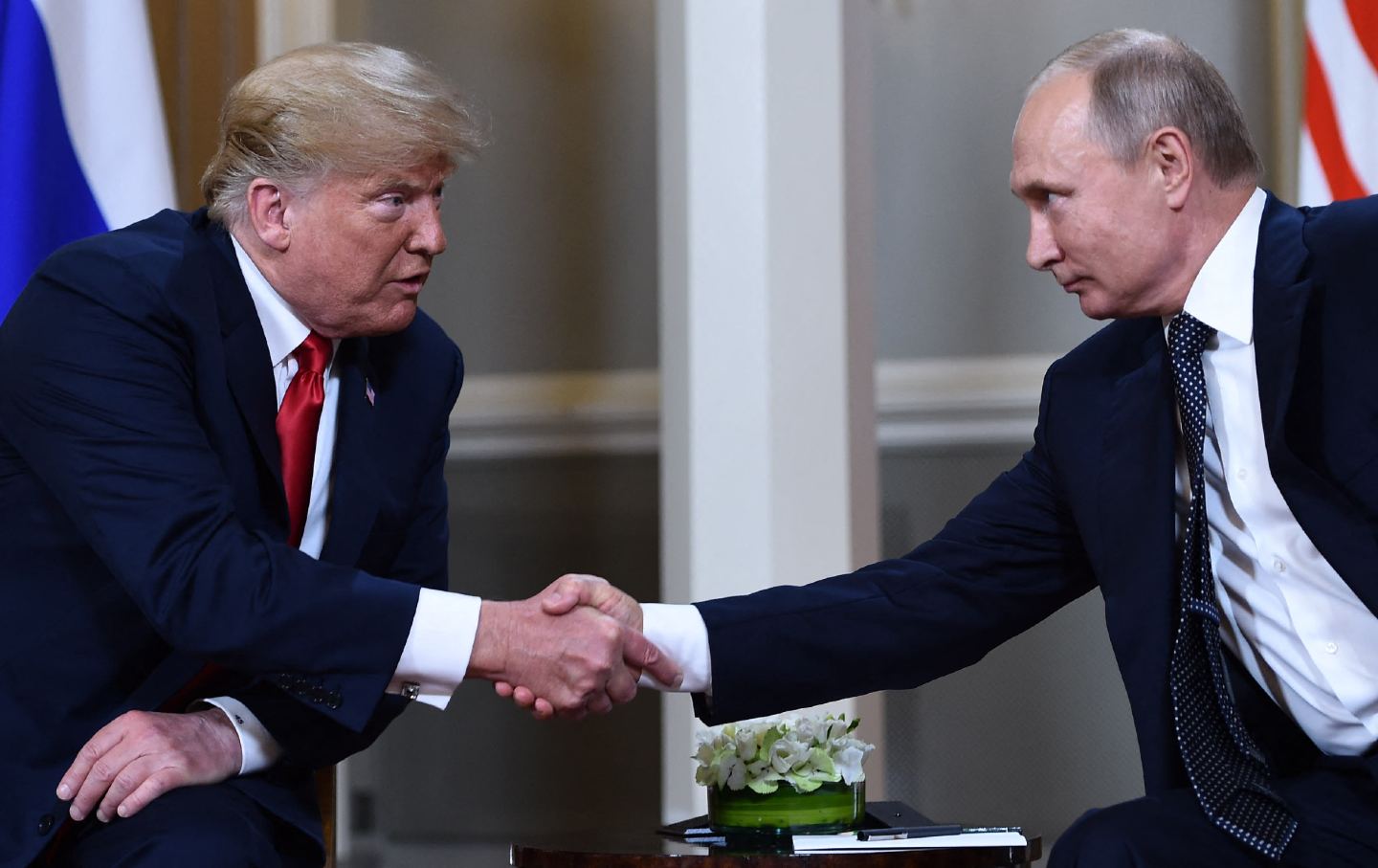The West Bank Is the Unseen Second Front of Israel’s War on Gaza
Emboldened by the world’s silence, Israeli settlers are working hand in hand with the military to terrorize Palestinians throughout the West Bank.
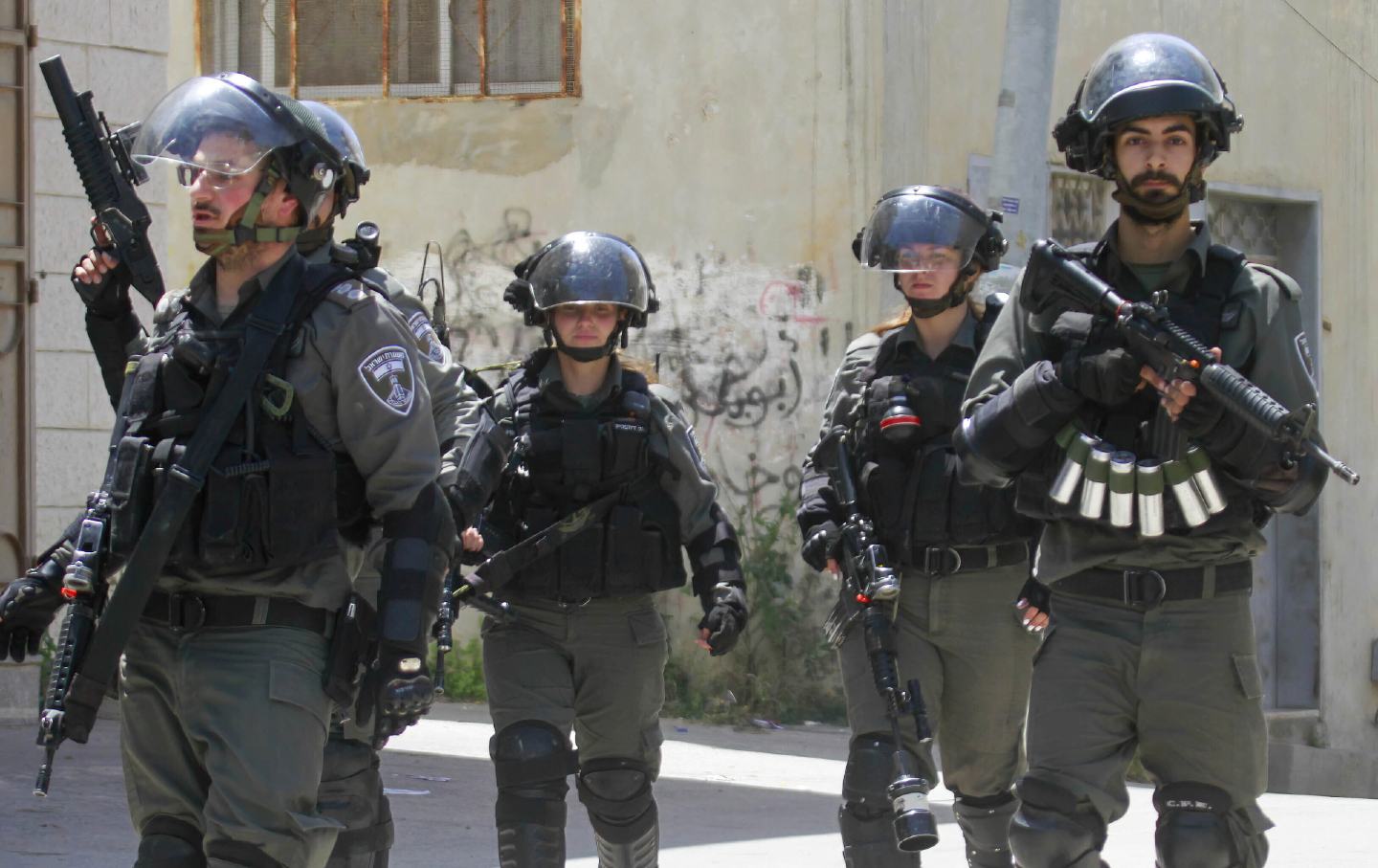
Israeli soldiers prepare to arrest Palestinians in the village of Shweika, near Tulkarm, in the northern West Bank.
(Nasser Ishtayeh / SOPA Images / Sipa USA via AP Images)There is a tendency to compartmentalize Palestinian existence, to treat the various forms of segmentation of Palestinian populations and their segregation from one another as something innate and natural, rather than the manifestation of colonial divide-and-rule tactics. Consequently, the bigger picture is often lost, producing an analysis that frames intimately linked events as fundamentally disconnected.
As the world’s eyes have been focused, understandably, on the atrocities Israel has been committing in the Gaza Strip, the Israeli military has been intensifying its assaults on Palestinians living in the West Bank. Israel has cordoned off Palestinian communities, blocking the entrances and restricting movement in and out, while settlers have been allowed to roam freely across rural areas, firing eagerly at Palestinians who cross their paths. At the same time, the Israeli military has stepped up their raids all across the West Bank of Palestine. Stories of abject cruelty and torture have emerged, as soldiers and settlers have together rounded up Palestinians and, in at least one case, allegedly stripped, blindfolded, sexually assaulted, and even urinated on them. More than 165 Palestinians have been killed over the last three weeks in the West Bank alone, with at least 2,200 arrested thus far.
This is an all-out campaign of revenge against Palestinians. But if we resist the trap of compartmentalization, we can see that it is also something else: It is an opportunity for Israel to intensify its colonization efforts across the West Bank, expediting plans set in motion long ago.
Palestinians understand that although the West Bank and Gaza Strip are separated geographically, they are nonetheless part of the same story. They serve as different battlefields in the same Zionist war to colonize the entirety of Palestine. The assaults on Palestinians everywhere form a continuum that can be traced straight back to the Nakba.
While many Israelis deny that the Nakba even happened, the Israeli right not only recognizes it but is also unabashedly and unapologetically in favor of its monstrous ethnic cleansing campaigns and calls for their replication. In Salfit, the capital of Palestinian olive oil production, settlers are attacking olive farmers in their groves, then leaving behind flyers threatening the farmers with a “great Nakba” should they not leave their homes and head to Jordan. In Masafer Yatta, settlers have been raiding multiple Palestinian communities, beating and torturing Palestinians, issuing ultimatums telling residents to leave within 24 hours or be killed and have their homes burned down. Collectively, the results have been as predictable as they have been horrifying: Since October 7, 828 Palestinians, including 313 children, have been expelled from over 13 communities in Area C.
These actions did not suddenly commence in October, however; instead, they represent a culmination of efforts over the last couple of decades to strengthen the settlement movement and to embed settler voices into the highest echelons of the Israeli regime. Leaders such as Itamar Ben Gvir, the minister of national security, have openly called for the annexation of the West Bank. His department has also been arming settlers with military-grade rifles, effectively giving them carte blanche to do as they please and seize as much land as they can.
Settler and State Violence
It is important to understand that settlers in the West Bank do not act alone. They enjoy the support and protection of the Israeli government and military. In such a context, there is no functional difference between settler violence and state violence. The settlers cannot sustain themselves without the constant flow of money, resources, and soldiers provided by the Israeli regime and by international aid and political support. They would, moreover, not feel so emboldened to commit their atrocities if they weren’t escorted to their victims’ houses by armed troops. It is not merely a question of complicity or inaction on the part of the soldiers—they also partake in the violent campaigns.
Since the beginning of 2023 to October, over 270 Palestinians had been killed, the majority of them refugees from the Nakba. Raids and incursions have been focused on refugee camps in Jenin, Tulkarm, Jalazone, and others, which have always been hubs of resistance. On October 22, for the first time since the Second Intifada, the Israeli air force bombed the West Bank, reducing a mosque in the Jenin refugee camp to rubble.
These refugee camps have haunted the Israeli regime for decades. They are living proof of the criminality of 1948 and the destruction of Palestinian society. They are symbols of steadfastness, of hope, creating new generations of resistance.
The Israeli regime understands this dynamic. It, too, views its activities in the West Bank as yet another front in the colonization of Palestine: the ultimate objective being the completion of the Nakba, from river to sea.
The events unfolding over the past few weeks threaten to be merely a prelude. Meanwhile, the Palestinian Authority is unwilling to advocate for its people, using its weaponry and armored vehicles to repress critics and crack down on youth trying to defend their communities. In light of its lack of legitimacy in the eyes of most Palestinians, a PA confrontation with Israel or the international community is out of the question. After all, Israel and the international community are the only ones prolonging its survival.
Ultimately, the expulsions—many would even say, ethnic cleansing—taking place in the West Bank represent the true face of Israel’s colonial ambitions. Encouraged by the unfolding genocide in Gaza, and emboldened by the world’s silence, there is no need to equivocate anymore. The endgame of Zionism has never been quite so clear. What’s left to be determined now is what we will do to stop it.
We cannot back down
We now confront a second Trump presidency.
There’s not a moment to lose. We must harness our fears, our grief, and yes, our anger, to resist the dangerous policies Donald Trump will unleash on our country. We rededicate ourselves to our role as journalists and writers of principle and conscience.
Today, we also steel ourselves for the fight ahead. It will demand a fearless spirit, an informed mind, wise analysis, and humane resistance. We face the enactment of Project 2025, a far-right supreme court, political authoritarianism, increasing inequality and record homelessness, a looming climate crisis, and conflicts abroad. The Nation will expose and propose, nurture investigative reporting, and stand together as a community to keep hope and possibility alive. The Nation’s work will continue—as it has in good and not-so-good times—to develop alternative ideas and visions, to deepen our mission of truth-telling and deep reporting, and to further solidarity in a nation divided.
Armed with a remarkable 160 years of bold, independent journalism, our mandate today remains the same as when abolitionists first founded The Nation—to uphold the principles of democracy and freedom, serve as a beacon through the darkest days of resistance, and to envision and struggle for a brighter future.
The day is dark, the forces arrayed are tenacious, but as the late Nation editorial board member Toni Morrison wrote “No! This is precisely the time when artists go to work. There is no time for despair, no place for self-pity, no need for silence, no room for fear. We speak, we write, we do language. That is how civilizations heal.”
I urge you to stand with The Nation and donate today.
Onwards,
Katrina vanden Heuvel
Editorial Director and Publisher, The Nation
More from The Nation
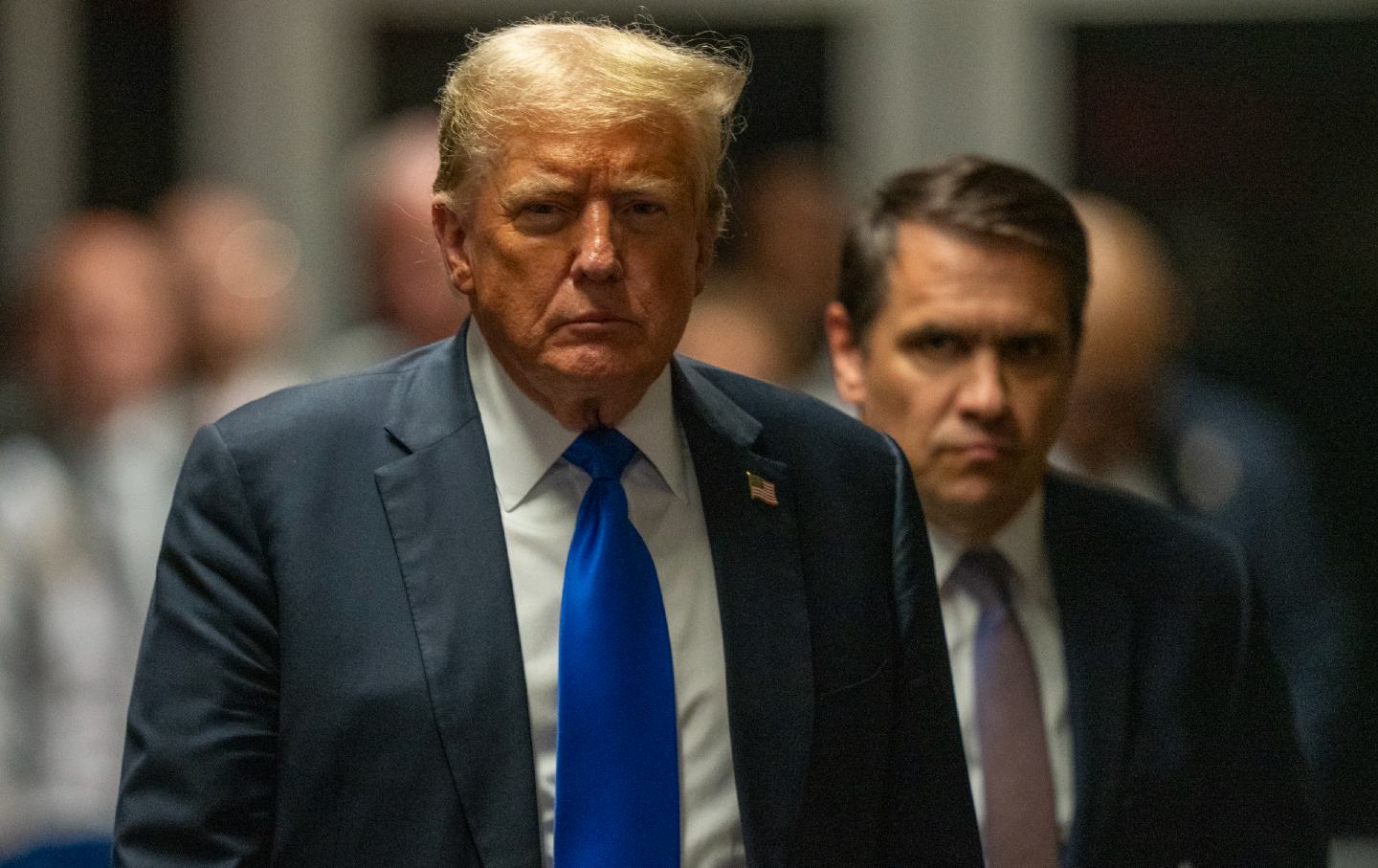
Trump’s Second Presidency Will Only Accelerate America's Imperial Decline Trump’s Second Presidency Will Only Accelerate America's Imperial Decline
Trump is on track to bring a hasty end, silent or otherwise, to an “American Century” of global dominion.

Warning From the Past Warning From the Past
In a new film, journalists confront a dictator.

The Case Against Joe Biden for Complicity in Genocide The Case Against Joe Biden for Complicity in Genocide
The ICC has applied for an arrest warrant for Benjamin Netanyahu. But Israel’s assault on Gaza has been made possible by US support.
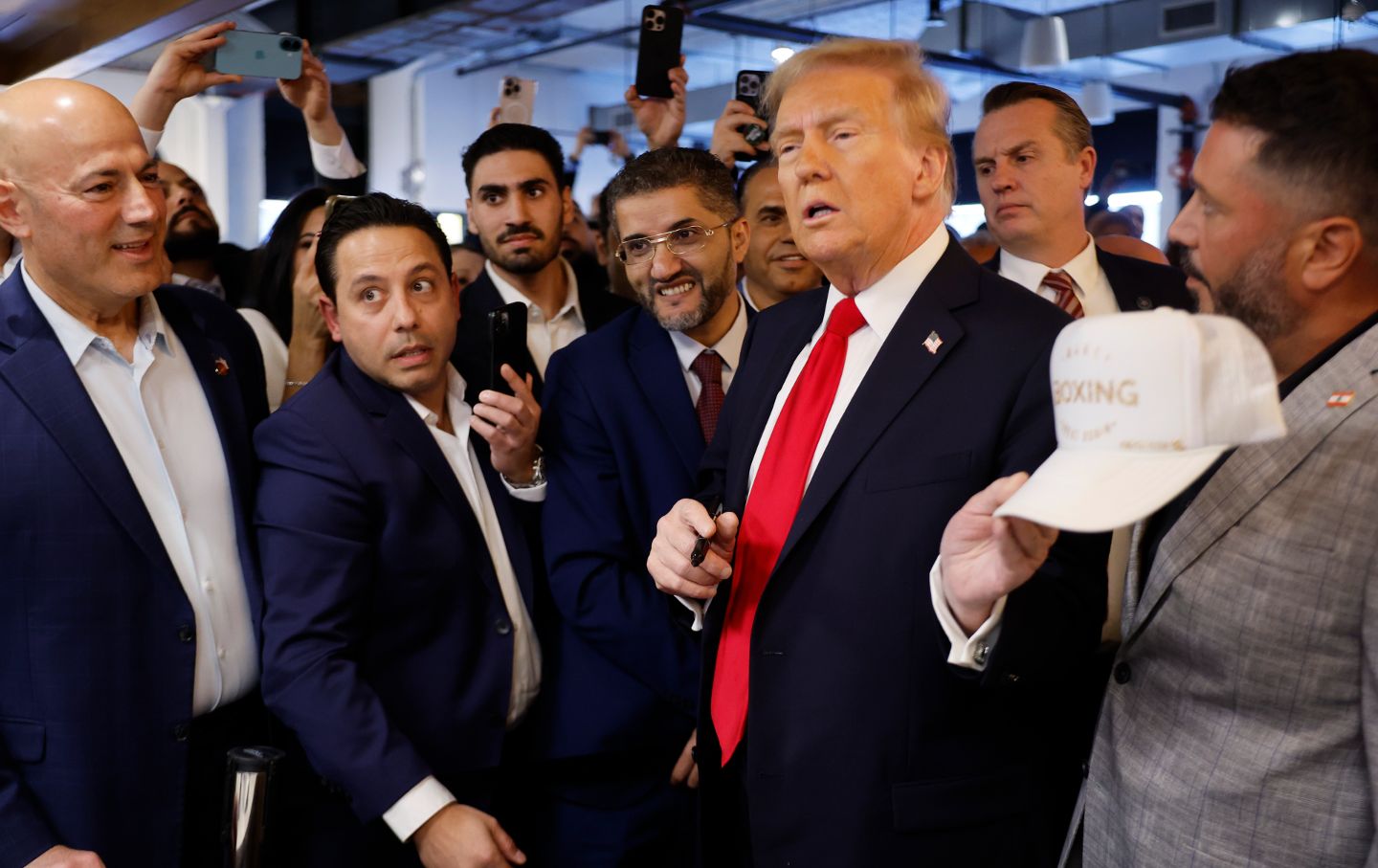
Gazans Heard Trump's Promises. Now They Want Him to Keep Them. Gazans Heard Trump's Promises. Now They Want Him to Keep Them.
Trump made a direct pitch to end the war on Gaza. The people still living there were listening.
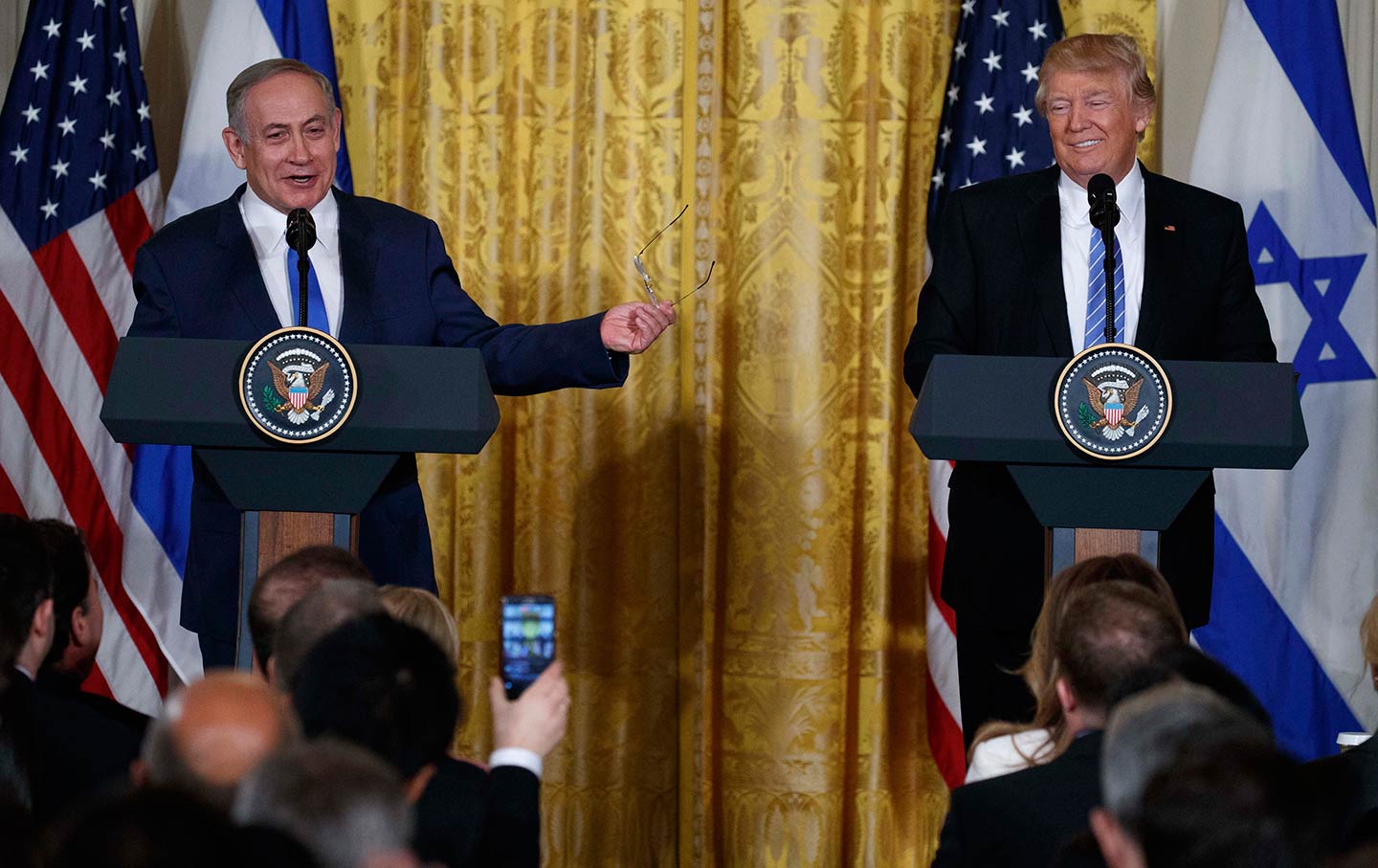
The Fallout of Biden’s Middle East Policy Is Now Trump’s Responsibility The Fallout of Biden’s Middle East Policy Is Now Trump’s Responsibility
In Trump’s hands, the country's diplomatic strategy in the Middle East can only get worse.

